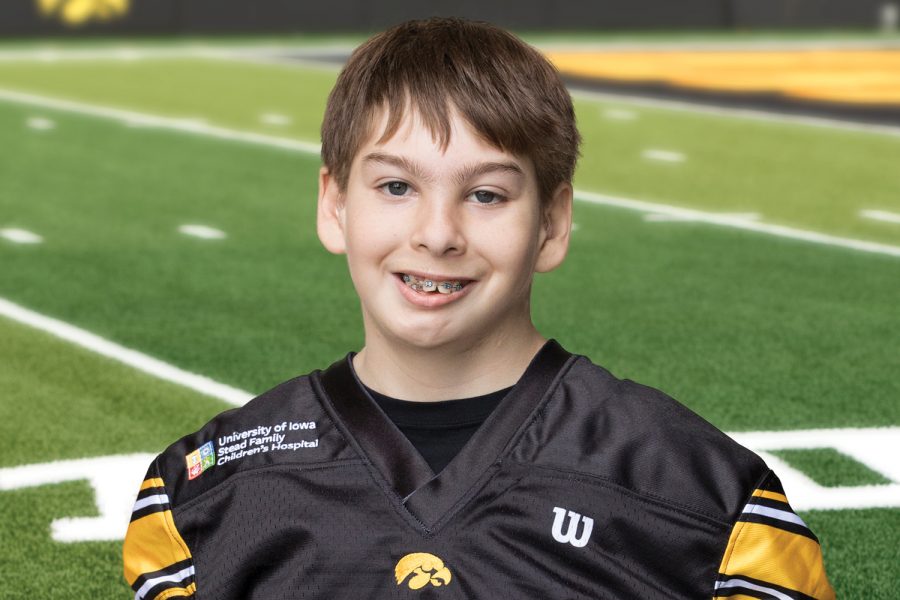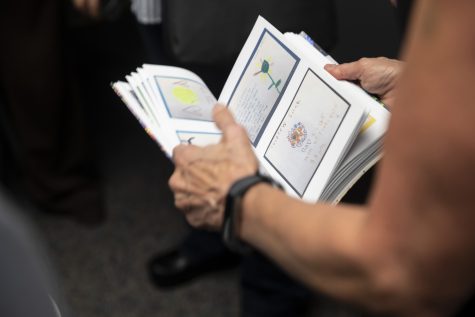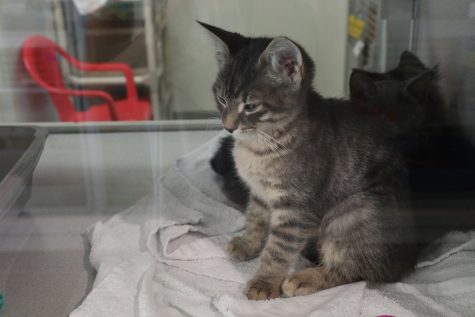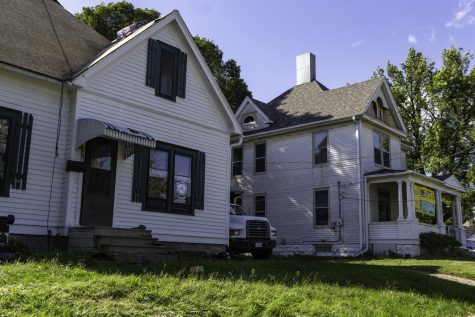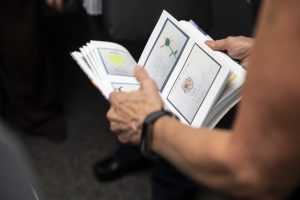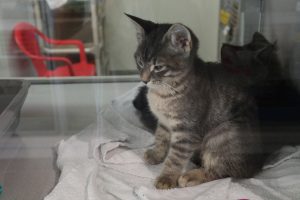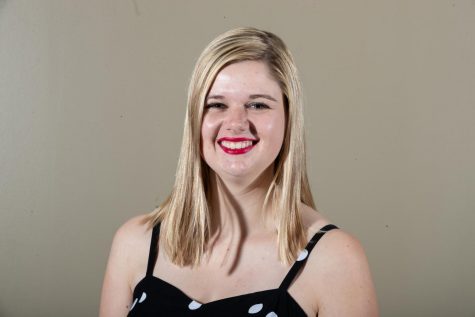Meet the first Kid Captain of the Hawkeye football season, Aidan Kasper
14-year-old Aidan Kasper was diagnosed with two rare conditions by the time he was a year old. Now, this week’s Kid Captain is able to live normally with the help of monthly blood transfusions.
August 30, 2019
Besides riding his hover board outside, 14-year-old Cedar Rapids native Aidan Kasper never really got into sports. He prefers crafts such as origami, where he’s learned how to create nearly every animal from YouTube videos.
His dad, Rob Kasper, said his favorite animals include insects and reptiles.
“He would love to have a snake, but not in my house,” Kasper said with a laugh.
Aidan, who is the first Kid Captain of 2019 at Saturday’s Hawkeye game against Miami (Ohio), tends to stay away from activities that could be strenuous because of his medical conditions, his dad said.
After Aidan was born, Kasper said he didn’t “present like your typical baby.” Kasper previously worked as a paramedic, so he said he knew babies should be crying after they are born. Aidan was also an abnormal color.
“When it got really busy for a while [in the hospital room], you realize something isn’t quite right,” Kasper said. “But it was only about a minute and a half when you look back at it.”
Because the Cedar Rapids hospital didn’t have the resources needed to treat Aidan, Kasper went to Iowa City with him in an ambulance.
Aidan was diagnosed with Pierre Robin sequence, a craniofacial abnormality that results in a smaller lower jaw and the tongue placed farther back in one’s mouth. The rare condition makes breathing and eating more difficult.
The hospital became the family’s home for the next several months, Kasper said, as Aidan stayed in the NICU for 63 days. Since the Kasper’s are based in Cedar Rapids, he and his wife were able to alternate who was at the hospital, he said, which wore on both of them.
“I wouldn’t want anyone to ever have to go through that,” Kasper said. “But the upside is, if it’s a family within 300 to 400 miles of Iowa City, they have a lot of great resources to help.”
Aidan had a few surgeries during that time to help him breathe, Kasper said, and a tube was put down his nose to help feed him. As all of this occurred, Kasper kept a journal to keep track of all of the procedures and information his son was undergoing, which he said was therapeutic.
After Aidan was able to come home at 3 months old, the Kasper’s took family photos, and friends made remarks about how pale Aidan looked in them. After going to a doctor in Cedar Rapids, they were told to go right back to Iowa City.
Aidan also had Diamond-Blackfan anemia, another rare condition where his bone marrow can’t make enough red blood cells. Aidan’s red blood cell count was a bit off when he was first born but not unusually so, Kasper said, but in that three-month period the count reached dangerously low levels.
“We thought the other issue was under control, but we get this other kick in the pants,” Kasper said. “We got the ‘poor-me’ syndrome, thinking: ‘What else could go wrong?’ But that moves off quickly, and we could deal we this.”
Now, Kasper said Aidan’s Pierre Robin sequence has been surgically repaired and eased over time as he’s grown up. It doesn’t cause him any issues currently, he said, though his siblings would tell you he’s a loud snorer.
Every three to four weeks, Aidan spends a weekend at the Stead Family Children’s Hospital for a blood infusion that Kasper said is the best treatment for him right now. None of Aidan’s siblings are a donor match for a bone marrow transplant, Kasper said, which means there would be a greater risk the transplant wouldn’t take hold and help Aidan.
This is the second time Aidan’s nurses recommend him to be nominated for Kid Captain, and Kasper said he’s thrilled his son was chosen this time.
“I hope he looks back on it in a few years and sees it’s a special honor, and other people and families are inspired by him going out there and getting recognized,” Kasper said.



